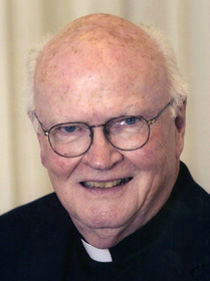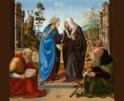
Culture
The human heart can find itself growing that way, too. That's why the edge of sadness that comes with this season cannot be left to grow beyond the dimensions of a hint or suggestion. Check it at the onset. Brush it off and look ahead with confidence. The best is yet to come.

Byron
At this time of year, falling leaves and flaming foliage come to those parts of the country where climates favor cold snaps, shorter days and deciduous, or leaf-shedding, trees.
"Fall back and spring forward" is the parental explanation to children wondering about the disappearance of daylight saving time. Springtime now seems so far away. An edge of sadness accompanies an autumnal awareness of the passage of time and the fragility of life.
For some, the distraction of football and marching bands helps the mind disengage itself from the "hazy, lazy days of summer" and connect with the reality of work -- schoolwork or some other segment of workplace reality. Back to normal is a typical adult description of the season we call autumn.
Autumn without sunlight would be unimaginable. Autumn without rain would delay the return of those colder days that have been standing by, waiting for their annual re-entry into our lives.
Indian summer, that lovely span of warm afternoons that take us by surprise shortly after the first frost, lifts our spirits briefly before letting us gently down into the vestibule of winter. That, at least, is how I think of the change of seasons from summer to fall.
Fall is another name we give to this time of year. The season gets this name from the falling leaves. Autumn works better for those who have no leaves to gather up and bag (where years ago we used to burn), and no colored leaves to trace and mount on construction paper and post on schoolroom walls.
"Autumn" as a word may have a root relationship to words in other languages for increase or augment, as the crops increase to their harvest readiness in the season we call autumn. Much more likely, the word simply means autumnal, not autonomous, just autumnal -- transitional from warm to cold.
The human heart can find itself growing that way, too. That's why the edge of sadness that comes with this season cannot be left to grow beyond the dimensions of a hint or suggestion. Check it at the onset. Brush it off and look ahead with confidence. The best is yet to come.
Autumn is an invitation to meditation and contemplation. Instead of yielding to the pull of depression, a reflective person at this time of year will focus on gratitude and let hope lift the soul to new heights.
This is a great time of year to think and even pray about hope. When Pope Francis visited Cuba in September, he spoke to young people and said:
"The young are the hope of every people; wv hear this all the time. But what is hope? Does it mean being optimistic? No. Optimism is a state of mind. Tomorrow, you wake up in a bad mood and you're not optimistic at all; you see everything in a bad light. Hope is something more. Hope involves suffering. Hope can accept suffering as part of building something; it is able to sacrifice.
"Are you able to sacrifice for the future, or do you simply want to live for the day and let those yet to come fend for themselves? Hope is fruitful. Hope gives life. Are you able to be life-giving? Or are you going to be young people who are spiritually barren, incapable of giving life to others, incapable of building social friendship, incapable of building a nation, incapable of doing great things?"
Autumn, then, is a time to be thinking about hope.
JESUIT FATHER BYRON IS UNIVERSITY PROFESSOR OF BUSINESS AND SOCIETY AT ST. JOSEPH'S UNIVERSITY IN PHILADELPHIA. EMAIL: WBYRON@SJU.EDU.
- Father Byron is a columnist with the Catholic News Service.
Recent articles in the Culture & Events section
-
Tolkien's world, still popular on the big screen, began with faith and wordsCecilia Hadley
-
Scripture Reflection for Dec. 22, 2024, Fourth Sunday of AdventDeacon Greg Kandra
-
Getting adult children to Christmas MassGreg Erlandson
-
The work of redemptionEileen McLaughlin
-
Intern reflectionsEmily Greco and James Kaeser


















